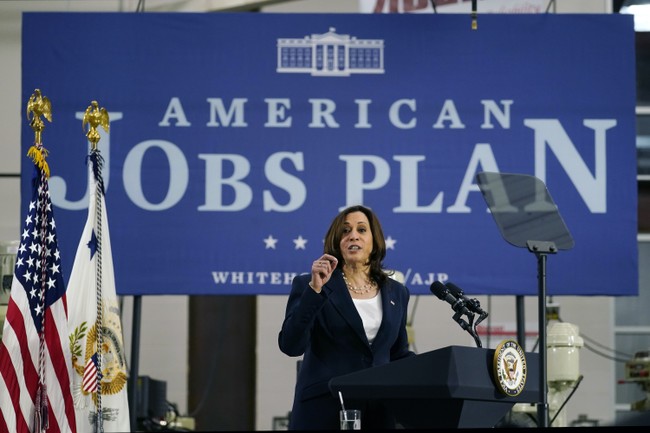
The U.S. economy added just 12,000 jobs in October 2024, falling far short of the anticipated 100,000 jobs and marking the weakest monthly job growth since late 2020.
This report, released by the Bureau of Labor Statistics (BLS), underscores a worrying slowdown in the labor market and raises questions about the effectiveness of current economic policies, often referred to as “Bidenomics.” The sluggish job growth, coupled with downward revisions to prior months’ data, has sparked renewed concerns among economists and analysts about the resilience of the U.S. economy amid rising inflation and other volatile economic factors.
What Happened?
The October jobs report shows a significant deceleration in job growth, hinting at deeper issues within the economy. While recent months had shown more robust hiring, October’s numbers reflect a clear downturn, with Wall Street projections falling well short of expectations. Economists have attributed the underwhelming figures to a combination of natural disasters and labor strikes that disrupted business operations across various sectors.
Two major hurricanes in late September and early October impacted business activities, particularly in southern states, where the leisure and hospitality sectors are critical employers. According to the National Oceanic and Atmospheric Administration (NOAA), hurricanes this season caused billions of dollars in damage and forced temporary closures of hotels, restaurants, and other businesses reliant on tourism. The leisure and hospitality sectors, which have been recovering slowly since the pandemic, were among the hardest hit by these disruptions, leading to significant losses in jobs.
Additionally, the ongoing Boeing strike had an impact on the jobs data. With an estimated 30,000 workers off the payroll due to the strike, the aerospace and manufacturing sectors saw reduced hiring. Labor strikes have become more common in recent years, with workers demanding higher wages to keep up with inflation. The Boeing strike has not only affected the company itself but also its vast network of suppliers and related industries, compounding the negative impact on job creation in October.
What Does This Mean for Unemployment?
Despite the disappointing job growth, the unemployment rate held steady at 4.1%, indicating that while hiring has slowed, the labor market has not yet entered a decline. However, this stability could be temporary. Economists often cite that around 225,000 new jobs per month are needed to keep pace with the natural growth of the workforce—such as new graduates and those re-entering the labor market. Falling short of this “breakeven” level consistently suggests that job opportunities are becoming more limited, potentially leading to a rise in unemployment if the trend continues.
The low job creation numbers are also likely to affect wage growth. Without strong job demand, employers may feel less pressure to increase wages, which could hurt American workers’ ability to cope with inflation. Over the past year, wage gains have lagged behind inflation, causing a real wage decline for many workers. Sluggish wage growth combined with high inflation further strains households’ purchasing power, potentially slowing down consumer spending—a critical driver of the U.S. economy.
Broader Implications for “Bidenomics”
The October jobs report presents a challenging economic backdrop for the Biden administration, especially as critics continue to question the success of “Bidenomics.” This economic approach has focused on increasing federal investments in infrastructure, green energy, and other sectors in hopes of creating long-term growth and job stability. However, the persistent underperformance in job growth raises doubts about whether these policies are delivering the desired results.
Republican critics have argued, especially ahead of the 2024 presidential election, that “Bidenomics” has had a major, negative impact on the economy, leading to high inflation and rising interest rates that are making it more expensive for businesses to expand and hire.
In response to inflation, the Federal Reserve has raised interest rates multiple times over the past two years, aiming to slow down consumer spending and bring down prices. However, higher borrowing costs can also stifle business growth, making companies less likely to hire new employees or invest in expansion. As the Fed continues to walk a fine line between controlling inflation and supporting growth, the October jobs data raises questions about whether this balance has been effective in sustaining a healthy labor market.
Setting the Stage for Election Night
The October 2024 jobs report serves as a sobering indicator of the current state of the U.S. economy. With only 12,000 jobs added—far below expectations—and the unemployment rate remaining steady at 4.1%, the data highlights both immediate challenges and long-term concerns. As the administration grapples with criticism over “Bidenomics” and the Federal Reserve continues to adjust interest rates in response to inflation, the path forward remains uncertain. For now, the October jobs data underscores the importance of revisiting policies and strategies to reinvigorate the labor market and build a more resilient economy.
But concerns over the economy, which has dominated voter worries in virtually every poll to come out this election cycle, will not be eased by this report and may have an impact at the ballot box.
